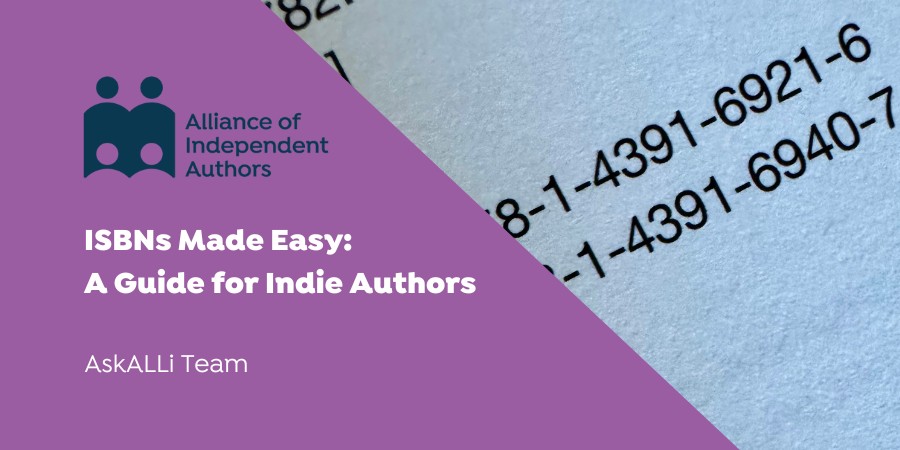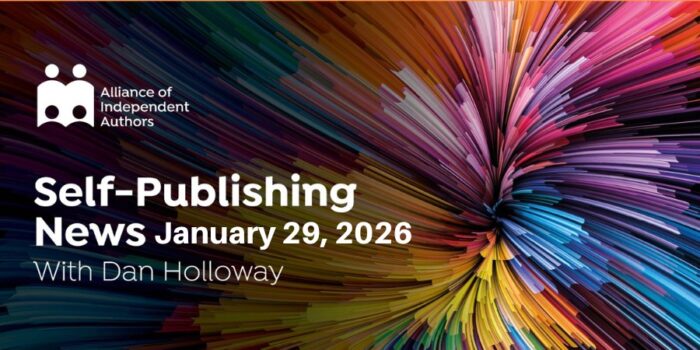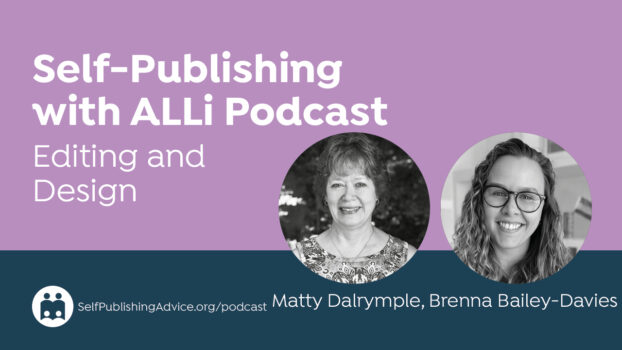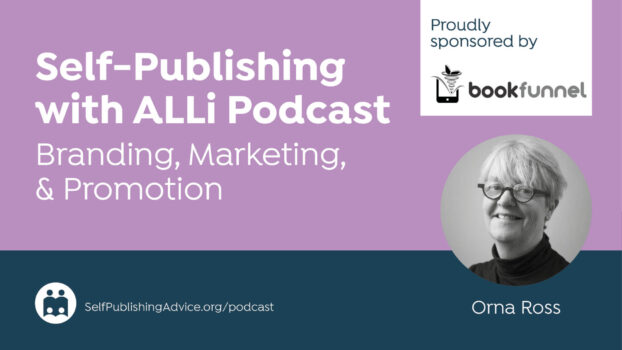We always have questions from our members on “ISBNs made easy,” so this guide will walk you through everything you need to know. ISBNs may seem like minor details in the publishing process, but they’re crucial for indie authors looking to build credibility and control over their work. An ISBN (International Standard Book Number) is a unique identifier for every edition and format of a book, enabling bookstores, libraries, and online platforms to find, catalog, and distribute books efficiently. It serves as a key to reaching readers and making a book discoverable across retail and library channels worldwide.
The Alliance of Independent Authors, strongly recommends that self-published authors purchase their own ISBNs. This ownership positions indie authors as the “publisher of record,” giving them a professional advantage in a competitive market.
In this guide, we’ll explore the essentials of ISBNs, from why they’re beneficial and how to use them effectively, to practical steps for purchasing and registering ISBNs. With input from experts like Michael La Ronn, ALLi’s outreach manager and author of over eighty books, this overview will help you understand how ISBNs fit into a successful indie publishing strategy.
What is an ISBN, and What Does it Do?

Michael La Ronn
An ISBN is more than just a number; it’s a unique identifier for each version of a book, distinguishing it within the publishing world. Bookstores, libraries, and readers use ISBNs to track and catalog each edition, ensuring your work is accessible wherever books are sold or borrowed.
Owning an ISBN for each edition of your book adds a layer of professionalism. As Michael La Ronn points out, “ISBNs are important to authors for a few reasons… it does make you look more professional in the marketplace.” By purchasing their own ISBNs, indie authors establish themselves as the “publisher of record,” rather than relying on free ISBNs from platforms like Amazon or IngramSpark. La Ronn elaborates, “When you purchase an ISBN, you are the publisher of record… So when people look up your book, they see you as the publisher of record,” signaling quality and independent control over the author’s publishing career.
How ISBNs Are Used:
- Efficient Ordering and Distribution: ISBNs streamline ordering for bookstores and libraries, ensuring the right format and edition can be sourced quickly.
- Inventory and Stock Control: They are essential for inventory management in larger retailers and libraries, helping them track stock accurately.
- Discoverability Across Platforms: ISBNs enable books to be easily found on various channels, from library networks like OverDrive to online bookstores.
- Data and Sales Analysis: ISBNs allow publishers to track sales performance by edition, supporting decisions about print runs or new editions.
Using ISBNs effectively strengthens an indie author’s professional presence across the publishing network.
Why Indie Authors Should Own Their ISBNs
For indie authors, owning an ISBN is more than just a formality—it’s about maintaining control and establishing a credible presence in the industry. When authors purchase their own ISBNs, they are officially listed as the publisher, which can positively impact how their book is perceived. By contrast, free ISBNs from platforms like Amazon or IngramSpark list the platform as the publisher, limiting the author’s independence and brand-building potential.
Michael La Ronn underscores this benefit, saying, “When you don't purchase your own ISBNs and you take them from Amazon or IngramSpark… the retailer appears as the publisher of record. Now if you are the director of your own career, why do you want somebody else to show as the publisher of your book?” This role as the “publisher of record” is essential for authors aiming to build a recognizable brand around their work.
Owning an ISBN can also streamline future negotiations with collaborators, such as editors, designers, or distributors. Anna Featherstone points out, “Having it in your own ownership is a much wiser ideal to negotiate if you're working with… someone who's helping you get your book out.” By owning their ISBNs, indie authors keep their options open for wider distribution channels and partnership opportunities with libraries, bookstores, and industry professionals.
Ultimately, purchasing an ISBN reinforces an author’s status as an independent publisher, adds credibility, and ensures the flexibility needed for reaching readers through multiple platforms.
How ISBNs Work Across Different Formats and Platforms
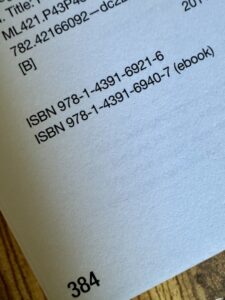 Each version of your book—whether it’s a paperback, ebook, or audiobook—needs its own ISBN. Think of it this way: each format is a unique product, so it needs a unique identifier. However, you don’t need separate ISBNs for the same format on different platforms.
Each version of your book—whether it’s a paperback, ebook, or audiobook—needs its own ISBN. Think of it this way: each format is a unique product, so it needs a unique identifier. However, you don’t need separate ISBNs for the same format on different platforms.
Example Scenarios
- If you’re publishing an ebook, you can use the same ISBN across all platforms, like Amazon, Kobo, and Apple Books. This way, your ebook is seen as one unified product, no matter where it’s listed.
- For print books, each format needs its own ISBN. A paperback and a hardcover of the same book require different ISBNs because they are distinct physical products.
- Similarly, if you publish an audiobook, it also needs its own ISBN, as it’s a separate format from your print and digital versions.
Using one ISBN per format keeps things clean. It ensures that reviews, sales data, and distribution remain connected under one listing, which avoids fragmented reviews and data across retailers.
Where and How to Buy ISBNs
When it comes to buying ISBNs, indie authors need to know a few essentials: where to buy them, what to avoid, and how to save money by purchasing in bulk. Here’s a breakdown to make the process simpler and avoid common pitfalls.
-
Only Buy from Official ISBN Agencies
ISBNs are country-specific, so authors should purchase from their own country’s designated ISBN agency to ensure they’re the official “publisher of record.” The main agencies for ISBNs are Bowker in the United States, Nielsen in the UK, and Thorpe-Bowker in Australia, while Canada offers ISBNs through Library and Archives Canada for free. Be cautious of third-party resellers who advertise ISBNs at discounted rates, as these are usually not legitimate. ISBNs bought from unauthorized sources might list the reseller as the publisher, leading to potential issues with distribution and author rights.
To verify you’re using a legitimate agency, visit the International ISBN Agency’s website for an official list of ISBN agencies by country.
-
Pricing and Bulk Discounts
The cost of ISBNs varies widely by country, and in many places, buying them in bulk offers substantial savings. For example:
- In the United States, a single ISBN costs $125, but you can buy ten for $295, reducing the cost per ISBN. If you’re publishing multiple formats (e.g., paperback, ebook, audiobook), buying ten can be a cost-effective option even if you have only one title.
- In the UK, Nielsen charges £93 for a single ISBN, but a block of 1000 costs approximately £1,000.
- Australian authors can purchase one ISBN for $44 AUD, or ten for $88 AUD, which is much more affordable.
Bulk purchases are often recommended for authors with long-term publishing goals, as they make it easier to publish multiple formats or future works at a lower per-unit cost.
-
Avoid Group Purchases or Shared ISBN Blocks
Although it might be tempting to team up with other authors to buy ISBNs in bulk, it’s important to avoid this. Each ISBN is permanently linked to the purchaser, who is recorded as the publisher of record. If a group of authors shares an ISBN purchase, the entity making the purchase—not the individual authors—is listed as the publisher. This creates confusion in ownership, complicates rights management, and can lead to issues with royalties, copyright, and distribution. Essentially, your book could be misattributed, affecting its discoverability and potentially causing legal complications.
-
How Many ISBNs Do You Need?
Each format of your book (e.g., ebook, paperback, hardcover, audiobook) needs its own ISBN. If you’re planning to publish a title in multiple formats, buying a block of ten can be a practical choice, as you’ll likely use multiple ISBNs for one book. Having extras can also give you flexibility if you decide to add a large print edition or a special edition down the line.
-
Registering and Tracking Your ISBNs
Once you’ve purchased your ISBNs, the next step is to register them with your country’s agency. Registering includes entering metadata such as the book title, author name, format, and publication date. This information makes your book discoverable in catalogs and databases worldwide.
Keeping track of each ISBN is crucial, especially for authors managing multiple titles and formats. A spreadsheet listing each ISBN along with its corresponding format, release date, and distribution platforms can help you stay organized. This “ISBN hygiene” ensures that each identifier is used correctly and consistently across platforms, contributing to your book’s professional presentation.
Registering Your ISBNs and Maintaining Metadata
Once you’ve purchased your ISBNs, registering them with your country’s ISBN agency and keeping the metadata up-to-date are essential next steps. Metadata includes basic details like title, author name, format, and publication date—information that helps bookstores, libraries, and online platforms identify and list your book correctly.
Why Metadata Matters
Accurate metadata is crucial for discoverability. It’s what allows readers, booksellers, and librarians to find your book easily. When registering each ISBN, authors are required to enter core details that cataloging systems rely on. Keeping this information accurate and consistent is key to maintaining a professional image.
Maintaining “ISBN Hygiene”
As you update your book or release new titles, it’s important to check that all ISBN details remain accurate. Michael La Ronn advises a proactive approach: “Double-check everything for accuracy, just to make sure you entered everything correctly… I’ve run into some situations where I’ve accidentally typed in a wrong price.” Regularly reviewing your ISBNs for accuracy, such as price changes or description tweaks, helps maintain a unified presentation across platforms.
The Fun Side of ISBNs

Anna Featherstone
Managing ISBNs may seem purely administrative, but it can also be a personal touchpoint in an author’s journey. Anna Featherstone adds a lighthearted take, noting that she enjoys finding meaning in the last few digits of each ISBN. “On my last book, I saw one of the numbers actually coincided with the date of my book launch… so I was just going to go down the list and pick that one, because that is fun to me,” she says. Incorporating small, memorable elements like these can make ISBN management feel less routine.
When to Update Metadata
If you make significant changes, like revising the cover, updating author credentials, or adjusting the price, it’s worth updating the metadata to reflect these changes. While minor updates don’t typically require a new ISBN, they should still be accurately reflected in the agency’s database to support your book’s discoverability and professional appeal.
For authors with multiple books and formats, tracking ISBNs in a spreadsheet—listing each ISBN, format, release date, and platform—can help stay organized. Managing metadata thoughtfully, and even adding a bit of personal flair, can contribute to a polished and accessible book catalog for readers and professionals alike.
Avoiding Common Pitfalls with ISBNs
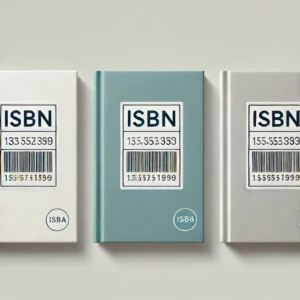 For indie authors, managing ISBNs correctly from the start can prevent headaches and additional costs down the road. Once you publish a book with an ISBN, it’s locked in permanently to that particular edition and format. If you make certain changes—like adding a new chapter, reformatting for a different print size, or switching publishers—you’ll need to unpublish the book and assign a new ISBN.
For indie authors, managing ISBNs correctly from the start can prevent headaches and additional costs down the road. Once you publish a book with an ISBN, it’s locked in permanently to that particular edition and format. If you make certain changes—like adding a new chapter, reformatting for a different print size, or switching publishers—you’ll need to unpublish the book and assign a new ISBN.
Michael La Ronn, who has published close to 100 books, learned this the hard way. He recalls his early experiences: “If you publish your book with an ISBN, you can't change it later… You have to unpublish your book and then republish it under a new ISBN. That can be an expensive mistake.” He emphasizes the value of getting it right from the beginning, adding, “I did not purchase my own ISBNs in the very beginning of my career… I wish I had purchased my own ISBN. It’s a pain in the neck, to put it lightly, to have to redo this down the road.”
For authors publishing multiple books, the costs and complexities of changing ISBNs can multiply quickly, underscoring the importance of purchasing and managing ISBNs carefully. Here are a few tips to help avoid common ISBN-related pitfalls:
- Purchase Your Own ISBNs Early
Buying your own ISBNs ensures that you remain the publisher of record, giving you full control over your book’s listing and future editions. This upfront investment helps prevent the need for costly updates down the line. - Assign One ISBN Per Format and Edition
To avoid duplicate listings or scattered reviews, assign a single ISBN to each unique format and edition (e.g., paperback, hardcover, ebook). This helps keep metadata unified across platforms and preserves a clean, professional appearance. - Avoid Using ISBNs Across Formats or Editions
Each new format or significant edition change (like a translated version or updated print size) requires a new ISBN. Attempting to use the same ISBN across different formats can lead to distribution issues, confusion in search results, and even potential legal complications with retailers. - Keep Track of Your ISBNs in One Place
Maintaining a centralized record of ISBNs, such as a spreadsheet listing each ISBN, its associated book format, and release details, can make managing them simpler as your catalog grows.
Library Lending
Owning your ISBNs offers a direct path to reaching readers through libraries, which can be a significant channel for expanding readership. When authors purchase their own ISBNs and register them under their name or publishing company, they maintain full ownership of the title, which has added financial benefits in some countries with lending rights schemes.
Library lending programs compensate authors for the times their books are borrowed, allowing them to earn royalties beyond traditional sales. As Anna Featherstone explains, “So by having that ISBN under your own name or in your publishing company name, you get that 100% of the payment. You don't have to split it, because we have a lending rights scheme, so we're compensated for our books being in libraries.” This means authors receive full compensation from library loans, rather than having to share royalties with a platform or third-party publisher.
Owning your ISBN ensures that libraries recognize you or your publishing entity as the book’s publisher, which opens more doors for indie authors interested in library distribution. Platforms like OverDrive, which provides digital books to libraries, require ISBNs for participation, making it crucial for authors who want their books accessible in libraries to secure their own ISBNs. This not only supports discoverability but also establishes the author’s independent publishing credentials within the library system.
Tracking and Reporting
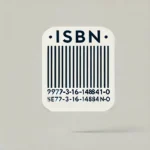 Owning an ISBN is not just about making a book available—it also enables authors to track and analyze how their books perform over time. With an ISBN, indie authors gain access to valuable sales data and reporting systems that are often essential for understanding their book’s impact and reach.
Owning an ISBN is not just about making a book available—it also enables authors to track and analyze how their books perform over time. With an ISBN, indie authors gain access to valuable sales data and reporting systems that are often essential for understanding their book’s impact and reach.
When each format and edition of a book has a unique ISBN, it allows for precise tracking across sales channels. This means authors can analyze which formats (like ebook, paperback, or audiobook) are performing best, identify trends in sales over time, and adjust their strategies accordingly. By maintaining control of their ISBNs, indie authors are included in official industry reports compiled by agencies like Nielsen or Bowker. These reports track sales data and market trends, providing indie authors with the same access to industry insights that traditional publishers rely on.
For self-published authors, keeping records of ISBN-linked data is essential for understanding audience preferences, planning marketing strategies, and even deciding on future formats or editions. With ISBN data in hand, authors can make informed decisions to grow their readership and strengthen their presence in the marketplace.
Practical Steps for Purchasing and Managing ISBNs
Securing and managing ISBNs can seem complex, but breaking the process down into a few practical steps helps indie authors start on the right track. Here’s how to approach the ISBN process:
- Purchase Through Your Country’s Official ISBN Agency
The first step is buying ISBNs through the designated agency in your country. “The most important thing about ISBNs is that they can only be purchased through an appointed agency in your country,” explains Michael La Ronn. In the United States, ISBNs are available through Bowker, in the UK through Nielsen, and in Australia through Thorpe-Bowker. Purchasing directly from these agencies ensures the ISBN is legally yours and protects you from potential scams by third-party sellers. - Buy ISBNs in Bulk if You’re Planning Multiple Publications
If you’re planning to release several books or editions, buying ISBNs in a block is a cost-effective option. Many agencies offer discounted rates when ISBNs are bought in groups rather than individually. As La Ronn notes, “If you think you're going to be publishing a lot of books, or at least more than one book, buy a block that’s appropriate to your publishing output… you’re going to pay a lot more per ISBN [if you buy just one].” Consider how many formats and editions you may need, as each will require a unique ISBN. - Register Your ISBN and Provide Metadata
After purchasing an ISBN, the next step is to register it with your country’s ISBN agency and enter essential metadata. This includes the book title, author name, publication date, and format, all of which cataloging systems use to identify and list your book accurately. Accurate metadata also helps your book remain discoverable on retail and library platforms. - Keep Track of ISBNs and Book Information in a Master Spreadsheet
Organizing ISBN data becomes increasingly important as you publish more books. La Ronn recommends maintaining a “master spreadsheet” to manage key details. “I have a master spreadsheet where I have all of my books… title, series title, price, description, date published. And then I also have the ISBN per format for each of those books,” he shares. Using a spreadsheet to record ISBNs, release dates, and platforms for each book format simplifies future updates and ensures your records are accessible.
By following these practical steps, indie authors can effectively manage their ISBNs, ensuring that their books are discoverable, professionally listed, and tracked across all publishing channels.
Conclusion
Purchasing and managing ISBNs is a powerful step toward establishing a professional and independent publishing presence. ISBNs offer more than just a way to catalog books—they’re a critical tool for ensuring discoverability, control, and credibility. By owning ISBNs, authors can be recognized as the publisher of record, retain full earnings from library lending rights, and access sales data that strengthens their understanding of market trends and reader preferences. Each of these benefits helps indie authors build a successful, well-informed publishing career.
Investing in your own ISBNs means you’re taking full control of your work, presenting yourself professionally, and opening opportunities for wider distribution. As Michael La Ronn puts it, “So if we want to be like publishers and we want to direct our own publishing careers, why shouldn't we do the same thing?” Treating ISBNs with the same importance as traditional publishers do reinforces your role as an independent publisher.
Owning ISBNs isn’t just about numbers—it’s about authorship, credibility, and ensuring that each book you publish reaches its full potential. By taking charge of ISBN management, indie authors can embrace the freedom and responsibility of self-publishing, paving the way for a successful, sustainable career.
Further Resources
- Using ISBNs as an Indie Author
- The AskALLi Ultimate Guide to ISBNs for Authors
- How to Get Your Self-Published Books into Bookstores
- Navigating ISBN Updates
- Buying Your Own ISBNs
- Unraveling the Mysteries of ISBNs
Thoughts or further questions on this post or any self-publishing issue?
 If you’re an ALLi member, head over to the SelfPubConnect forum for support from our experienced community of indie authors, advisors, and our own ALLi team. Simply create an account (if you haven’t already) to request to join the forum and get going.
If you’re an ALLi member, head over to the SelfPubConnect forum for support from our experienced community of indie authors, advisors, and our own ALLi team. Simply create an account (if you haven’t already) to request to join the forum and get going.
Non-members looking for more information can search our extensive archive of blog posts and podcast episodes packed with tips and advice at ALLi's Self-Publishing Advice Center.

